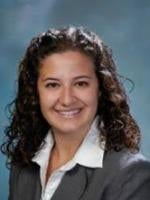The U.S. Court of Appeals for the Ninth Circuit affirmed a California district court’s holding that Apple Inc.’s software license agreement limiting use of the Mac OS X operating system to Apple computers did not constitute copyright misuse. Apple Inc. v. Psystar Corporation, Case No. 10-15113 (9th Cir., Sept. 28, 2011) (Schroeder, J.).
Apple’s Mac OS X operating system software is available to Mac users subject to a Software License Agreement that requires Mac OS X to be used exclusively on Apple-brand computers. Defendant Psystar Corporation began manufacturing personal computers in 2008 under the name “OpenMac” (which it later rebranded) and sold its computers with the Mac OS X system installed. Psystar also included an unopened copy of Mac OS X with each computer sold. Apple sued Psystar, asserting breach of the Mac OS X SLA and various infringement claims. Psystar argued that its use was permissible because it validly purchased copies of the software. Psystar also counterclaimed that Apple was engaging in copyright misuse by requiring that Mac OS X be used solely with Apple computers. The district court ruled in favor Psystar’s copyright infringement and permanently enjoined Psystar from manufacturing or selling computers that contain Apple’s Mac OS X software. The district court also held that the restrictions in Apple’s Mac OS X license agreement did not constitute copyright misuse. Psystar appealed.
The 9th Circuit affirmed. Acknowledging the “well-established” distinction between software licenses versus sales, the 9th Circuit rejected Psystar’s argument that its lawful purchase of Mac OS X justified its distribution of Mac OS X under the first sale doctrine. The court underscored that Psystar was a mere licensee of the software, not an owner, and that licensing agreements such as the Mac OS X license agreement may facilitate a copyright owner’s ability to control the use of its copyrighted material so long as competition is not stifled in the process. While Apple’s license agreement restricted the use of the MAC OS X to Apple hardware, it did not prevent Psystar or anyone else from developing competing computer hardware or software. Accordingly, the 9th Circuit rejected Psystar’s copyright misuse claim, concluding software license did not impermissibly extend the reach of its copyright in Mac OS X, and upheld the district court’s permanent injunction.




 />i
/>i

